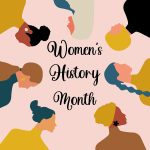Childfree Psy.D. student, Adi Avivi MS, recently conducted an interesting dissertation project. It examined childfree women’s communication on online platforms. I asked Adi if she would summarize her research for us to read here, and she was kind enough to say yes! Here is her summary:
Childfree Women’s Online Discussions of the Choice to Not Have Children: A Qualitative Study
Twenty-nine women volunteered to participate in a study that attempted to explore women’s communication of their childfree (CF) lives in online platforms. Specifically, the research explored childfree women’s computer-mediated interactions with other CFers using a qualitative research model. The data collected from five online discussion boards, designed specifically for the study, yielded four theoretical constructs that reflected the main issues the participants discussed:
1. The CF identity is complex and dynamic
Being CF did not mean that all the participants were similar nor did it imply that CFdom was the most salient aspect of their identity. The CF women who contributed to the study stated that once they were able to communicate with other CFers online, they were exposed to the variety and diversity within this large community. They had different paths to becoming CF, different views on CFdom and parenting, and CF had a different place in each of their lives.
2. Being a CF woman influences interpersonal relationships
The participants of the study reported that their relationships with family, friends, coworkers, and even strangers were frequently influenced by their CFdom. Because CFdom was often criticized, mocked, and misunderstood by others, participants varied in their choice to be honest or censure themselves when talking about the decision not to have children. Those participants who had support in their “off-line” relationships cherished it. Many felt that their relationships were negatively changed when others had children or when they shared their desire to remain CF. Additionally, being CF rendered dating and romantic connections more complicated. Many participants stated that not having children was “a deal breaker” for them, which narrowed their pool of potential partners. Those who had a CF partner often felt that their partner was their sole support outside of the internet.
3. CF dedicated websites are powerful tools of communication, support, information, and socialization
Internet websites dedicated to CF gave the participants rich outlets for many of their social and identity formation needs, which were not met by their “off-line” environment. Conversing and reading about CFdom online gave participants new language to understand themselves and discuss their choice with others. They found much-needed support and information that evoked in them feelings of pride, confidence, and self- worth that they did not feel before. Online, participants found humor and camaraderie, a safe place to honestly express their emotions and views regarding parents and children, and even friendships that extended beyond the internet. They found richness and diversity, convenient access to CFers from all over the world, and the safety of writing anonymously.
4. For CF women, the personal is political
The ability to explore nuances online exposed some of the participants to the connection between their personal choice and broader political consideration. Some women became more politically involved, viewing their CFdom as a motivating factor for activism. They expressed concerns regarding overpopulation, societal sanctioning and subsidizing of families and children, and the place of religion in reproduction. They wanted to fight the stigma and discrimination they suffered and were committed to educating others that CFdom is an equally valuable choice as having children.
More about Adi:
She is a fifth year Psy.D. student at Long Island University Post Campus (LIU). During her studies at LIU Post she has been the co-president of the Students for Multicultural Advancement in Research and Training (SMART) organization for two years, a member of the Trauma Team, and an outspoken peer mentor and advocate. Adi’s research interest is directed toward women on the fringes of society. Her dissertation touches of women’s rights, social norms, and technology.
Also, Adi’s chair/advisor on this dissertation project was Dr. Danielle Knafo, Ph.D., who she says is amazing!
Have questions for Adi? Please post them and make sure she gets them~ Thank you, Adi!






Very cool stuff. I wish her great success in her career.
One question, though, out of curiosity not criticism: Should the reader be told that Adi is childfree herself, which is what happens in the first line of this article? I can see an argument could be made either way. Ideally, her reproductive status ought to make no difference to her research, if she’s conducting an objective analysis. What do other people think? Is Adi a childfree researcher or a researcher on the childfree?
Hi Scott, I mentioned she is childfree given the nature of this blog. I doubt those involved in her research knew this. I would say from the rigor she needs to uphold to do a dissertation project and defend it, she is a researcher on the childfree…
Hello Scott,
When conducting qualitative research it is often advised to acknowledge one’s biases toward the topic of study. In my dissertation, I address the fact that I am a childfree woman. In general, researchers are biased and have their own wishes, hopes, and preconceived notions, even in quantitative studies. But – you are right. It would not matter. I made every effort to maintain objectivity and represent my subjects and not myself. This was done by meticulous data coding, done by independent coders, none of which identified as childfree.
I hope this answers your question!
Adi
Thank you so much for the results. I was happy to participate in the study. I wish there will be more serious research on childfreedom in the future!
I was SO grateful to participate and hope that by the success of your study, Adi, more researchers will decide to pursue taking a closer look at the CH community and the many questions there are left to be explored. Thank you for all of your hard work and dedication.
Thanks. I see your point.
I want to thank the participants again. Their dedication was really a testimony to the sense of community and desire to be known. I cannot thank these delightful women enough!
And Happy Birthday, Laura!
I find it difficult to understand how a research that is done out of test tube is free from the ideology of the researcher. Maybe it would have been interesting to have an analyzes done by a CF advocate and a mother. Or a man (who is not a CF. CF men is probably an issue as well)
Even more interesting would be to follow the participants and see if any of them changed their ideology, became moms and see how their opinion and answers changed
Well – I doubt anyone, including Bob, is reading this anymore, as it’s a year and a month since Bob’s comment. But just in case:
for one thing, longitudinal research like you suggest, Bob, cannot be done in the context of a dissertation, something that you need to finish within a set amount of time, usually a few years at most. What you suggest would possibly require at least two decades, to cover the whole period of time during which the participants are presumed to still be able to reproduce.
But furthermore, it does strike me as a bit presumtive to immediately suggest that the research was done on women who perhaps just hadn’t changed their minds yet. Would the same suggestion come up if someone were to do a study on the motivations and experiences of animal rights activists – how likely do you think it would be that people would jump to the conclusion that the activists simply hadn’t yet come round to wearing (or at least not objecting to) fur, but probably would, eventually? (Fur does appear to have regained a degree of acceptability again in mainstream fashion, hence the parallel.)
Moreover, I don’t think it was claimed anywhere that all the women in the study were still of reproductive age, unless I’m mistaken.
And, to answer Bob’s question at least for now (I would happily let him know each year in case he’s wondering, but I have no way of communicating with him): as one of the women in Adi’s study, no, I haven’t changed my mind yet, nor will I. I’ve just turned 35. I’ve been sterilised for several years now. I’m incredibly happy that I never caved in to the pressure to breed when I was younger and less sure of myself. No clock, no loss. I’d happily tell anyone wondering about it again at 40.
difficulties to talk with CF women is that many times they start the talk from a defensive stand point, use an offensive tone to support or cover this defensive feeling, and are not open to listen to a different opinion or criticism even if it has nothing to do with their personal choice
Personally, I think it comes from a deeper emotional state of mind than just pure, logical decision